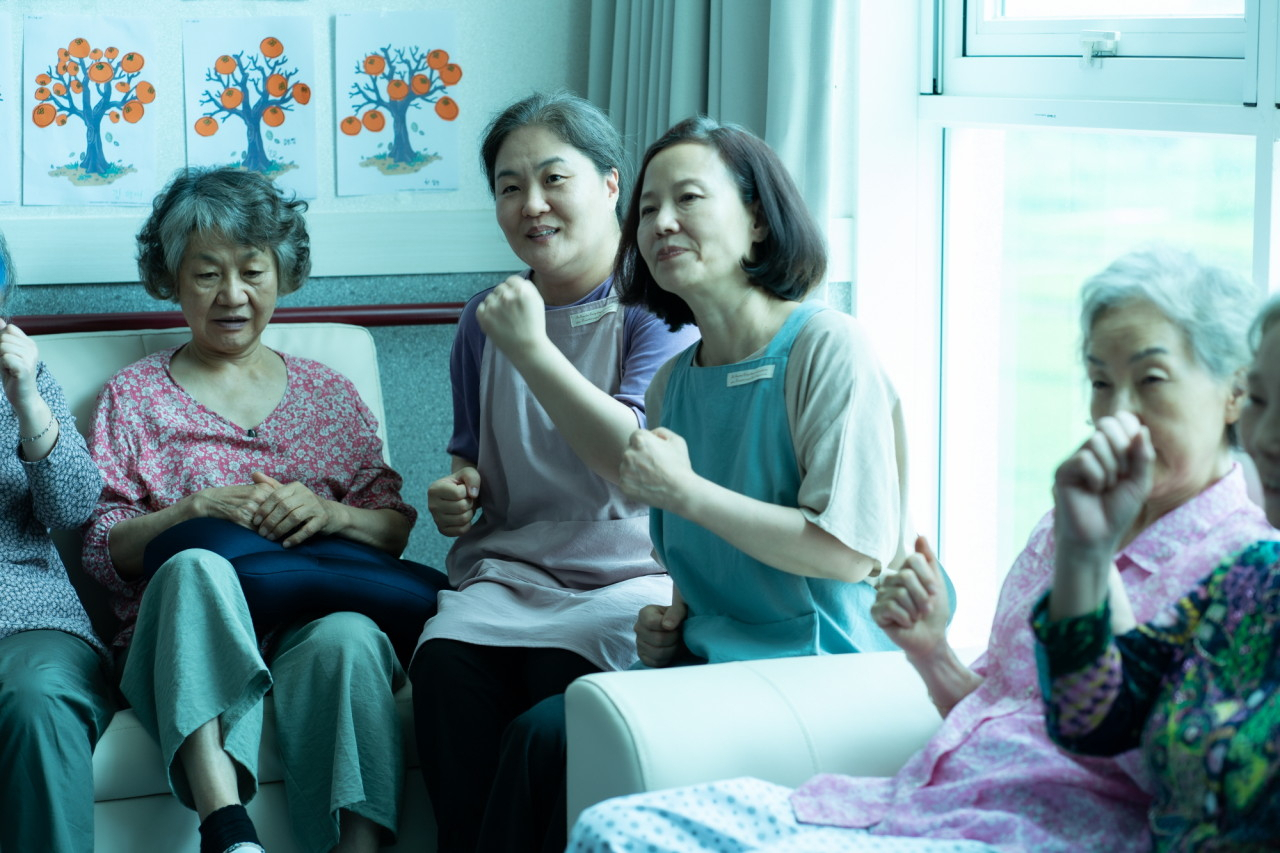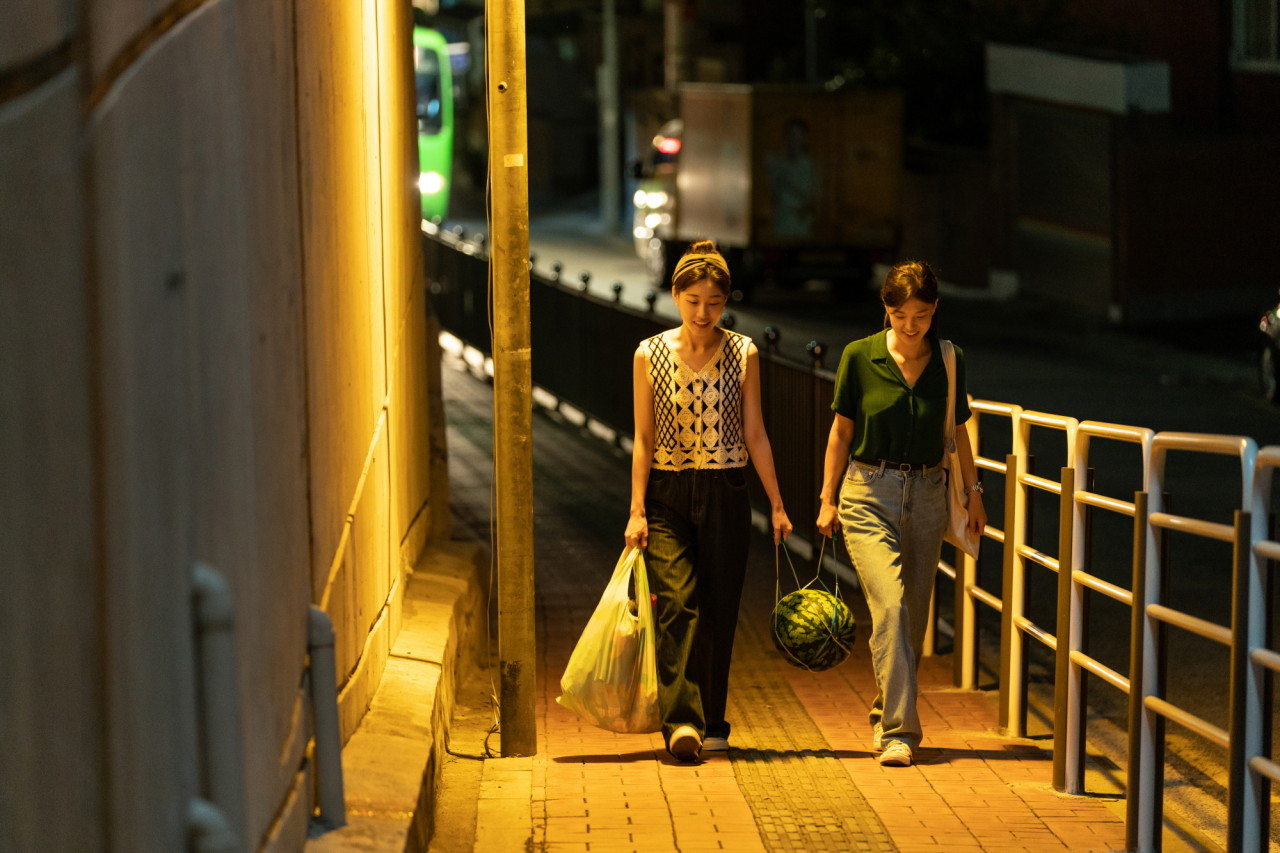 |
Oh Min-ae (second from right) plays Sang-ok in “Concerning My Daughter.” (Challan) |
Sang-ok (Oh Min-ae) is a mother in her 50s working as a caregiver at a nursing home. When Sang-ok’s 30-something daughter unexpectedly moves into her house with her girlfriend of seven years, Sang-ok is forced to live with them.
“Maybe I let you study too much,” Sang-ok says to her daughter, a part-time instructor at a college. Sang-ok hurls a barrage of questions at her daughter: “What can you guys do together? Can you guys register as a married couple? What about having kids? Do you really think you two can become a family?”
“Mom, don’t you think that it’s the people like you who are preventing us from doing it?” cries her daughter (Yim Se-mi), who goes by the nickname Green, as given by her partner Lane (Ha Yoon-kyung).
On the surface, the movie follows the stories of social minorities -- those who don’t fit into society as “normal” people or an “average” family: Sang-ok, who raised Green by herself; the seniors at the nursing home, who have no children visiting them; and the lesbian couple, who isn’t able to get acceptance from their parents.
 |
Ha Yoon-kyung (left) and Yim Se-mi play a lesbian couple in “Concerning My Daughter.” (Challan) |
But the film goes one step further -- revealing that accepting and loving people as they are doesn’t always require understanding.
Je-hee (Heo Jin), an elderly dementia patient under Sang-ok’s care, doesn’t have any family, despite dedicating her life to a charity foundation that she established to help impoverished children around the world.
The fact that Je-hee didn’t get married and have children like a typical family worries Sang-ok because she -- or perhaps her lesbian daughter Green -- could end up like Je-hee. Having centered her life around her now-dead husband and her daughter, to Sang-ok, Green’s definition of family is not one she can accept.
But, by the end of the movie, Sang-ok willingly embraces Je-hee, Green and Lane as family. Seeing them as people who need love, she invites them not just into her humble home, but into her heart as well.
Based on Kim Hye-jin’s best-seller novel of the same title, director Lee Mi-rang, who has made a feature film debut with this movie, delivers “our story” bluntly to the screen.
“The movie looks into social minorities such as the elderly, someone with a family or friends, LGBTQ+, irregular workers, which are, no matter what, our story,” director Lee said during a press conference held in Seoul on Aug. 22.
“While the title suggests that it’s about the daughter, if you follow the story as the film leads you, you will notice that the movie is about the mom, Je-hee, Lane, and also about us,” Lee added.
The movie premiered at the 28th Busan International Film Festival last year and won various awards at major film festivals such as the 49th Seoul Independent Film Festival and the 12th Muju Film Festival.
“Concerning My Daughter” is slated to release in theaters on Sept. 4.



